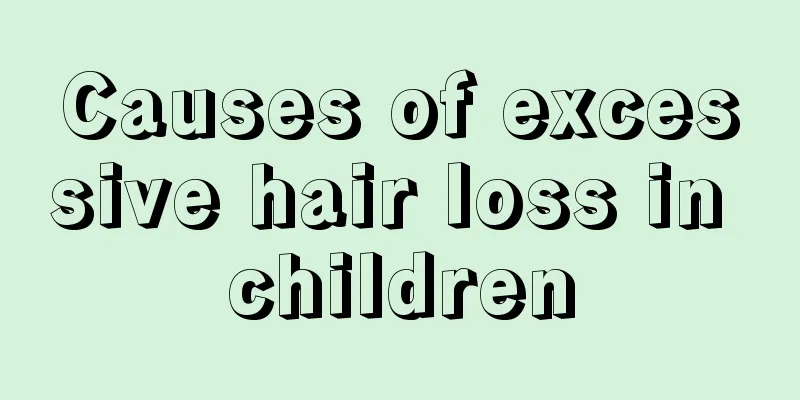Reasons for children sweating while sleeping

|
Children sweating while sleeping is a problem that almost every parent will encounter. Some parents are worried about this. The first thing they think of is whether the child is calcium deficient? Does the child have a weak constitution? Some children often sweat while sleeping, and the sweat soaks their clothes and pillowcases. This phenomenon is called night sweats in traditional Chinese medicine. Many parents are worried about this and seek medical treatment everywhere, but to little effect. In fact, sweating is a normal physiological phenomenon of the human body. Sweat can take away excess heat and some metabolic products such as uric acid and fatty acids in the body. Because children grow and develop rapidly, their metabolism is more vigorous than that of adults, and they generate relatively more heat and metabolic products. At the same time, children's autonomic nervous system is not fully developed. When they fall asleep, the sympathetic nerves in charge of the sweat glands will be temporarily excited due to the loss of control by the brain, resulting in excessive sweating. This is completely normal. As long as the child has no other symptoms, such as irritability, crying, easy waking, etc., there is no need to worry about him. This type of sweating often occurs within half an hour after falling asleep, and is mainly on the forehead. It usually stops slowly within 2 hours after falling asleep. It is more common in children aged 3 to 7 years old and gradually disappears with age. Some people call it physiological hyperhidrosis. However, if the child is usually weak and sweats profusely when falling asleep at night, as if he is being drenched in water, or even sweats all night long, wetting the pillow and clothes, and is accompanied by symptoms such as irritability, crying, and weight loss, then it is pathological hyperhidrosis. A common cause is vitamin D deficiency rickets. In addition to excessive sweating at night, there are also symptoms such as irritability, restless sleep, easy awakening, square head, baldness, and pigeon chest. If you have the above symptoms, you can supplement vitamin D and calcium in appropriate amounts under the guidance of a doctor. When eating, you should also pay attention to eating more foods rich in calcium, such as fish, shrimp skin, etc. With aggressive treatment, excessive sweating can be corrected quickly. When we take care of children with excessive sweating, we should pay attention to changing clothes and bedding frequently, and wipe the body with soft cloth at any time, or apply powder externally to keep the skin dry. When you are sweating, you should avoid being blown directly by the wind to avoid catching a cold. Excessive sweating can easily cause loss of yin fluid and damage to yang energy, so children should be given more water to drink and their diet should avoid spicy, dispersing and attacking foods to prevent damage to the vital energy and more sweating. |
<<: Symptoms of children sweating at night
>>: How to carry out neonatal rehabilitation training
Recommend
Can children eat watermelon when they have a cold or fever?
We all know that children's physical resistan...
What are the recipes for children to strengthen their physique?
Nowadays, many children have very poor physical c...
What to do if your child has a lot of eye mucus when sleeping
As children grow up, parents will certainly caref...
What should I do if my three-month-old baby loses his hair?
Some babies have experienced hair loss, which ser...
White spots on the child's skin
The appearance of white spots is not a normal phe...
Children need to be alert to these 4 "high-risk personalities"
3-6 years old is often referred to as the "w...
Reasons why babies hum when they sleep
Children with poor immunity often experience abno...
One week two months baby food
Babies aged one to two months cannot be given com...
What medicine should be used for athlete's foot in a 7-year-old child
Athlete's foot is a common foot skin disease ...
How to make a teething stick for a baby?
Every mother will buy a teething stick for her ba...
How to clean baby's ears
Children will have more ear secretions and like t...
How to prevent respiratory infections in children
Children are the apple of their parents' eyes...
Why is my five-month-old baby's stool green?
Every baby should grow up healthy and happy. Howe...
Can babies not eat mangoes? Nutrition experts tell you the answer
Mango is a very common but nutritious fruit. Eati...
How to prevent children’s bleeding teeth?
Children nowadays are particularly prone to eatin...









